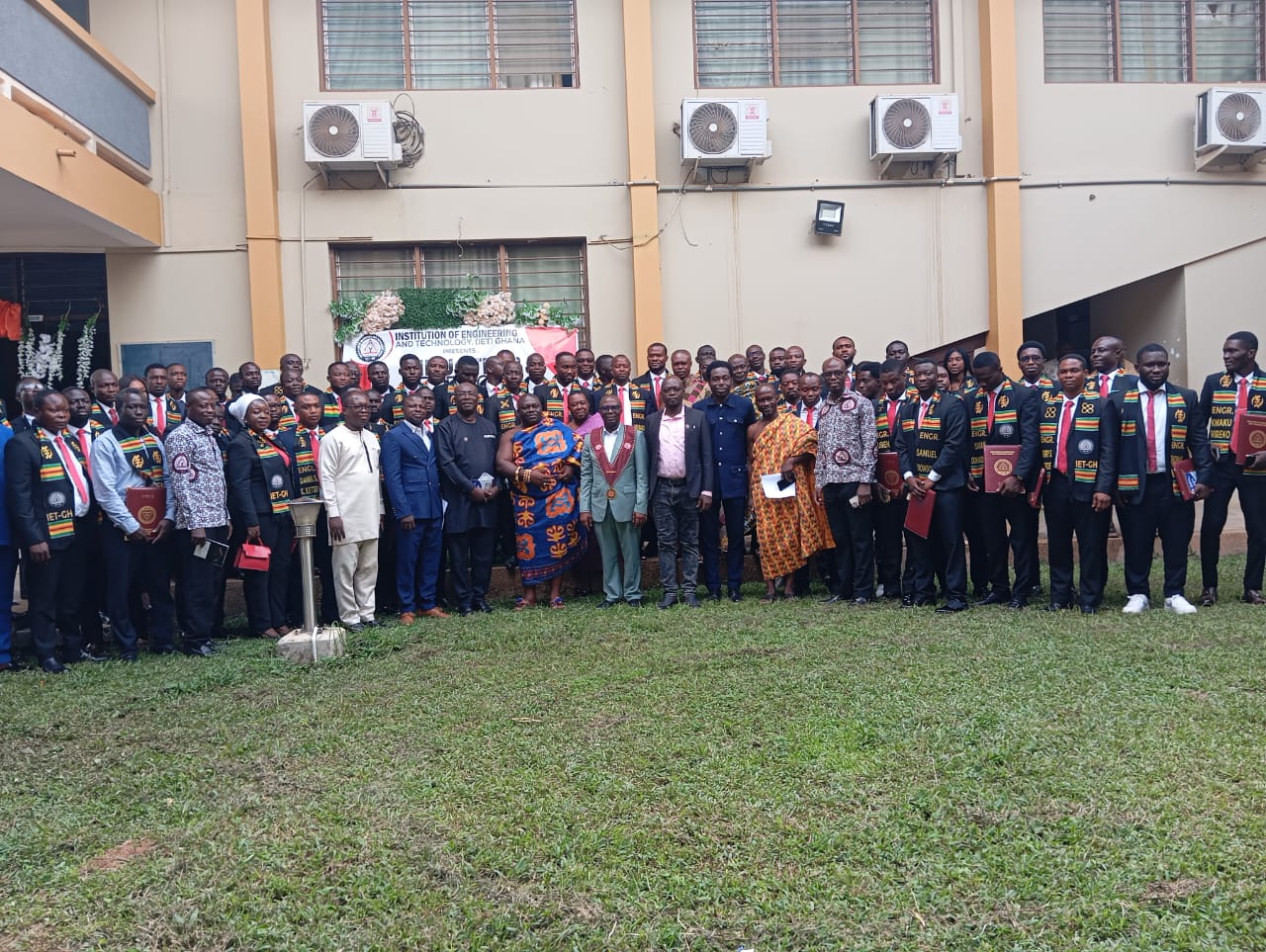Extend trainee allowances to engineering students – IET President tells gov’t – Nsemkeka
At the induction ceremony of new engineering professionals in Kumasi, the President of the Institution of Engineering and Technology, Ghana (IET-GH), Engr. Henry Kwadwo Boateng, delivered a powerful and urgent message highlighting a significant gap in national policy—the exclusion of engineering students from trainee allowance programs recently restored for nurses and teachers.
While the restoration of training allowances for nurses, announced by President John Dramani Mahama during his visit to Bono East Region, was a positive development for the healthcare sector, it raised an important question: why are engineering students not included in this vital support?
Engr. Boateng challenged the belief that trainee allowances are only necessary for professions facing personnel shortages.
In today’s Ghana, the greatest shortage is in engineering, technology, and skilled trades, key sectors driving industrialisation, infrastructure development, and innovation.
Despite their crucial role in building roads, power plants, factories, and digital systems, engineering students at Ghana’s technical universities, vocational institutes, and polytechnics receive no allowances, little formal recognition, and no policy-backed motivation.
This neglect has consequences: many skilled artisans and technicians at Ghanaian job sites come from neighbouring countries, not due to a lack of Ghanaian interest or talent, but because of insufficient support for local trainees.
Engr. Boateng’s message is clear: engineering students and trainees deserve equity. For Ghana to achieve industrialisation and self-reliance, trainee allowances must be extended beyond nurses and teachers to include engineering students, technologists, and technicians. This is about national progress and ensuring the future workforce is motivated and supported.
He called on President Mahama and policymakers to broaden trainee allowances to cover the engineering sector, stating that empowering these future engineers is essential to building a “Ghana Beyond Aid” based on local expertise and innovation.
To the newly inducted engineers, Engr. Boateng urged them to see themselves not just as professionals, but as changemakers and innovators. Their role includes leadership and advocacy, championing engineering and influencing policies that will shape the sector’s future.
This moment marks more than a professional milestone; it is a pivotal point in Ghana’s development. Providing trainee allowances to engineering students is key to equity, motivation, and building a stronger, self-sufficient nation.

